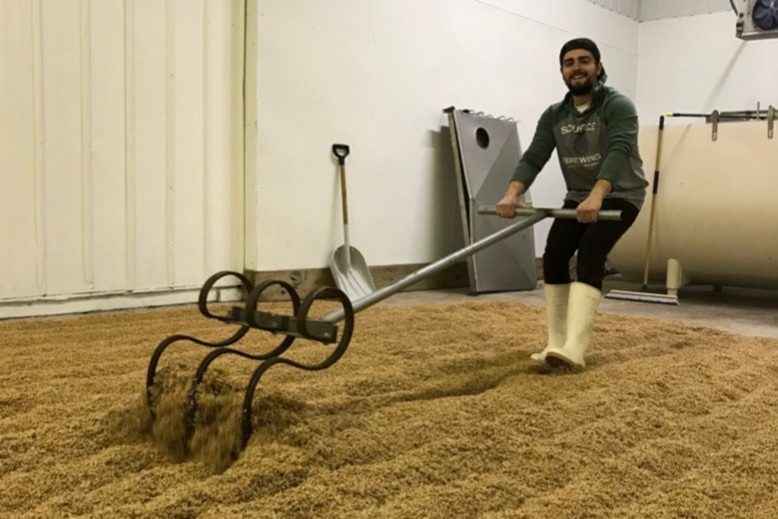
Craft breweries in New Jersey have faced daunting challenges recently. Last year alone, they navigated an array of supply-chain issues, including a national shortage of aluminum cans, higher prices for corrugated cardboard, a carbon dioxide shortage and the worst European hop harvest in decades.
Ukraine’s battle against Russian invasion has severely disrupted grain shipments across the globe. Together, the two countries export nearly a third of the world’s wheat and barley, two key ingredients in beer. A few months after the invasion, Ukrainian farmers raced to harvest their crops before they were destroyed. Exports were hampered by a Russian blockade of Ukraine’s ports along the Black Sea coast. This disrupted the international grain market, affecting bakers, chefs, brewers and distillers.
That led some Jersey breweries to look closer to home. “Sourcing some of the raw materials can be a little volatile, especially when you have international geopolitical things going on,” says Greg Taylor, director of brewing operations at Source Farmhouse Brewery in Colts Neck. “But as our name implies, we like to source locally when we can.”
The problem is a limited supply of Jersey-grown ingredients. The Garden State is nowhere near the top 10 in wheat production and is home to less than 20 hop growers, according to New Jersey Craft Beer, a website that tracks the industry. There’s only one malthouse, where grains are converted to malt for brewing and distilling.
Hillary Barile, fifth-generation farmer and maltster at Rabbit Hill Farms in Shiloh (Cumberland County), supplies malt to a long list of breweries, including Jersey’s Source, Tonewood, Kane, Screamin’ Hill Farm, and Axe & Arrow, as well as distilleries such as Asbury Park Distilling and Independent Spirits in Woolwich Township.
“Our local malt is not the cheapest, but it’s a premium we’re happy to pay because it’s local,” says Taylor. “There’s definitely a market for it. The industry has been growing pretty steadily over the past few years…. I think brewers would be keen on utilizing more local grains.”
That won’t happen overnight. “You can’t just chuck any old grain out there,” Taylor says. “You have to choose wisely and make sure all your inputs and controls are on point.”
But there could be a near future of incentives for breweries and distilleries that Jersey sources. It’s also good for sales, as consumers are increasingly drawn to locally produced foods and beverages.
No one knows New Jersey like we do. Sign up for one of our free newsletters here. Want a print magazine mailed to you? Purchase an issue from our online store.



